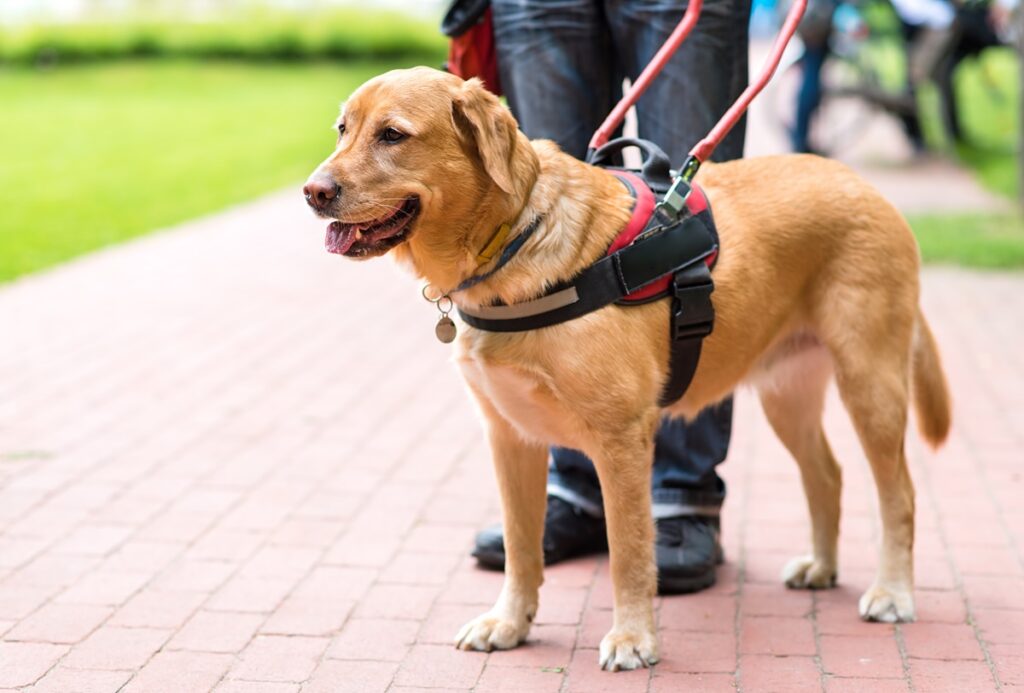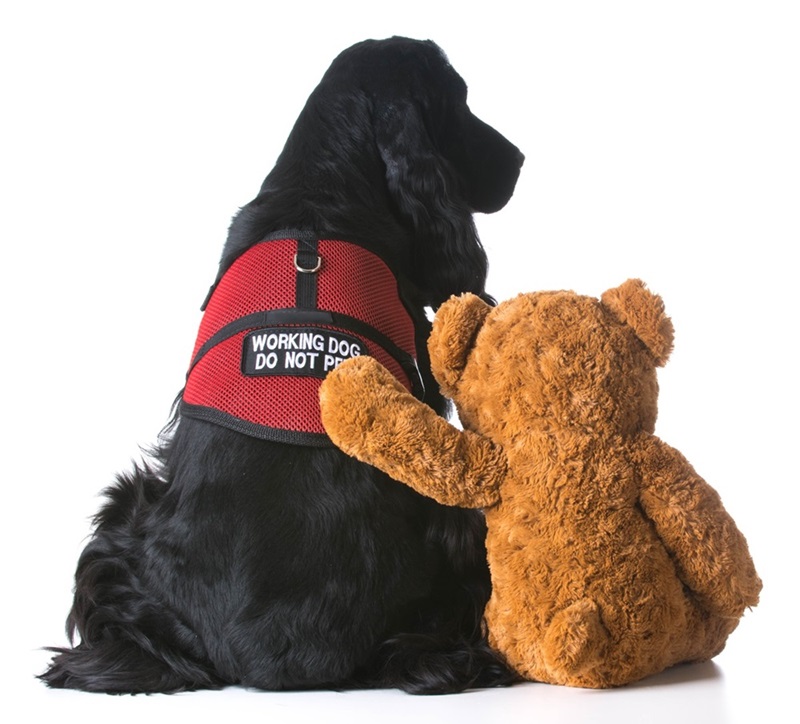Animal Chatter
by Iris Winston
The small boy and his dog were playing happily on the far side of the park. Even from some 200 yards away, I could see the extent of their joy in each other and their game. Also evident with every move was the special relationship between the two.

It was clear that this was more than the usual game of fetch with a chuck-it stick and a ball. Yes, the black lab brought the ball back to the boy every time and he was happy to toss it again and again. But it was the extra care she took as she returned the ball and the way that she stayed close to the child when they were not in motion that really drew my attention, as we walked towards them.
As my young dog, eager as always to meet new friends, and I came closer, the boy’s mother welcomed us and explained that their dog was a service dog. She also explained that her son would talk to me in sign language. The youngster did that very eloquently while the dogs greeted each other.
The way that they played together was fun for all of us to watch but it was the close relationship between the seven-year-old lad and his hearing dog that made the encounter especially significant for me.
“The dog has been a life changer,” said the boy’s mother, as she spoke of the tremendous difference the three-year-old Labrador’s presence makes to her son and to the whole family.
Undoubtedly, having a dog enriches the life of his human companion under any circumstances. When my 12-year-old Irish setter died, I knew that the only way to still the pain of loss was through having another dog to love. The human-animal bond is even stronger when it involves the difference in the quality of life that service dogs and emotional support animals of all types can make to their people’s lives. The dogs’ abilities and closeness help to make their human partners more confident and independent, so increasing their self-esteem just through the constant support they offer by always being beside them.
Service dogs are trained by their owners or professional trainers to complete tasks that the owners cannot do alone. Their support helps people with physical, psychiatric, sensory, intellectual or other mental disabilities. Emotional support animals (ESAs) are defined slightly differently as any animals (not necessarily dogs) that bring comfort and support to people who have mental disabilities or emotional illnesses.
Among the work that these dogs with jobs do regularly are guiding blind or visually impaired people, alerting deaf or hearing-impaired people to a variety of sounds, pulling wheelchairs and providing physical support for people with mobility and balance issues and collecting such items as medications and telephones to bring to their owners.

While many people are familiar with guide dogs trained to support individuals who are blind or visually impaired and hearing dogs trained to support people who are deaf or hearing impaired, they may not be aware of the many other conditions where service dogs and ESAs can make an enormous difference to their people’s lives. For example, individuals with post-traumatic stress disorder, neuro-cognitive issues or certain mobility or balance disorders can gain great support from their dogs. Service dogs can also be trained in such areas as the early detection of possible seizures and allergies.
While most service dogs are trained by professionals, there is no legal requirement to have them professionally trained. Owners may also train their dogs to complete the tasks that are of special importance to them. Trained service dogs may accompany their owners at all times and may not be denied access to public places.
The boy and dog at play that I just met are just one example of the beautiful difference service dogs and ESAs can make to so many people in need of support.
For more information on how to have a dog identified as a service dog, contact Service Dogs Canada, servicedogscanada.org. For more information on Emotional Service Animal registration, contact certapet.com/emotional-support-animal/canada.
Almonte, Ontario, writer Iris Winston is a former executive director of the Canadian Federation of Humane Societies. She has been an animal lover all her life. Her pets have always been important members of her family.






